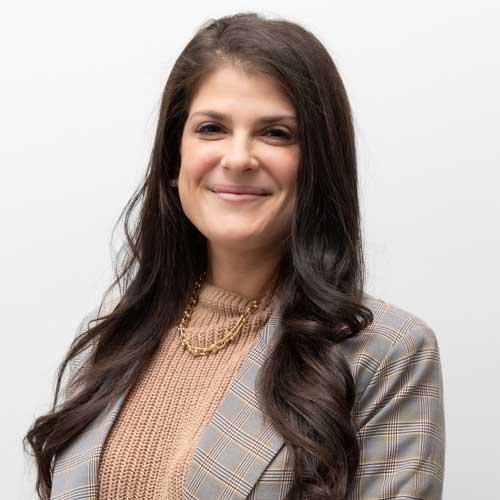The path of recovery is one of constant change. Learning to react and adapt to change in positive ways is at the heart of maintaining long-term recovery. Rehab centers in CT and other states do their best to prepare clients for life after their treatment programs have ended. There are many things you can do to stay on track with recovery, but keeping your goals realistic is critical.
Life is filled with challenges, and it’s important to remember that there will be bumps along your recovery path. If your goals are realistic, minor setbacks won’t threaten your sobriety. Set yourself up for success with goals that motivate and excite you.
Goal Setting and Mental Health
Anyone who wants to improve a facet of their life can benefit from setting goals. That includes mental health. Having big goals is great, but goals that are too hard to reach can become a source of disappointment and may negatively impact one’s feelings of self-worth.
Goals aren’t meant to cause more stress in your life. They are intended to be a roadmap that helps you reach a specific destination. For example, wanting to become a brain surgeon is amazing, but a major goal like that could be impossible without reaching dozens of small milestones along the way.
Research on goal setting shows that it is linked to success, motivation, and self-confidence.1 Accomplishing even small goals is especially good for those in recovery because it helps boost dopamine levels naturally. Reaching any small goal is a positive step.
If you wish to start meditating, instead of setting a difficult goal of meditating for 30 minutes every day, try setting a goal of meditating for five minutes. Accomplishing that will encourage your brain to repeat the behavior over and over again.
As you build on your accomplishments, you become more confident in your ability to succeed. Five minutes of meditation easily flows into 10, then 15, and soon, you’ll reach or exceed your goal of meditating for 30 minutes. Along the way, you’ll build the confidence to set new, more challenging goals.
Learning with Rehab Centers in CT: What Are SMART Goals?
Addiction treatment centers and other types of mental health services often discuss the SMART approach to goal setting with their clients. SMART stands for:
- Specific
- Measurable
- Achievable
- Relevant
- Time-bound
Specific goals are those you have identified. This is the “who, what, when, where, and why” part of goal setting. If you are setting a large life goal, it may require many smaller, specific goals along the way.
Measurable means you need some way to track or quantify your progress. If your overall goal is to run a marathon, you might start with the smaller goal of running 20 minutes three times a week.
An attainable goal is big enough to keep you excited but small enough to be realistic. It would be easy to give up on running a 26-mile marathon if you’ve never tried one before, but accomplishing a 20-minute run three times a week is realistic and will help you meet the larger goal.
Many people who have experienced substance abuse and mental health concerns also struggle with low self-esteem. The SMART method of goal setting is designed to help improve self-esteem by helping people focus on their achievements, not their mistakes.
Relevant goals help you stay in recovery. Any goal related to your physical or mental health, the health of your primary relationships, or your financial health would be relevant to recovery.
A goal without a timeline is just an idea. Write your goals down, and include a timeline. Instead of saying you’ll spend “less” time scrolling through social media, set a goal of spending only 30 minutes a day on social media.
SMART goals also help clients understand that healing is a continuous process. Setting goals can encourage individuals to embrace and build on small victories instead of being laser-focused on the bigger goal of “staying sober.”
Examples of Using SMART Goals to Maintain Sobriety
If you have just completed substance abuse treatment or are nearing the end of a rehab program, you are probably concerned about staying in recovery without consistent support. Goal setting can help minimize the feelings of overwhelm and maximize all you have learned during rehab.
Consider setting specific, measurable, attainable, relevant, and time-bound goals, such as:
- Engage in a sober activity with loved ones once a week
- Spend 30 minutes a day journaling or engaging in other mindfulness activities
- Attend at least one 12-step or other sober support meeting every week
- Spend one hour every day doing something you love
- Text, call, or see a sober buddy every day
These examples are simple, straightforward, and can be achieved quickly. Those new to sobriety may benefit from having a list of fun, joyful, and easy-to-achieve goals. As you build confidence in your ability to meet goals, you will naturally be drawn to more challenging and long-term objectives.
Celebrate Yourself
Living recovery doesn’t mean your fun days are over. The most enjoyable days of your life are still ahead now that you are free from addiction. Celebrating milestones is still an important part of life, and celebrating your achievements is an excellent way to recognize how far you’ve come.
Avoid ways of celebrating that could trigger old habits. Go hiking or out to dinner with your sober support network. Buy yourself something special or invite a sober friend to take a weekend trip. Allowing yourself to celebrate the completion of even small goals is a way to acknowledge that you deserve happiness.
Looking for Rehab Centers in CT?
Connecticut residents in need of outpatient substance abuse and mental health services can turn to the Connecticut Center for Recovery. At the Connecticut Center for Recovery, we recognize how difficult it can be to believe in your abilities after struggling with addiction.
Our team can help you identify the big and small goals that will improve your quality of life and provide the necessary resources to meet them. Contact the Connecticut Center for Recovery today to learn more about how rehab centers in CT can help.
Sources:
[1] https://psycnet.apa.org/record/2011-14077-001

Alexis earned both a B.S. in Psychology and a B.S. in Family and Child Sciences from Florida State University and an M.A. in Marriage and Family Therapy from the University of San Diego. She holds licenses in Marriage and Family Therapy in Florida, Connecticut, and Massachusetts and is also a member of the American Association for Marriage and Family Therapy (AAMFT).
Alexis works with families, couples, children, and groups and also has a sub-specialty in addiction and recovery. She utilizes an integrated, systemic approach to counseling; empowering people to define what is not working for them in their lives and to discover the possibilities for making life work. In doing this, clients are guided towards identifying their strengths, accessing their resources, tapping into their potential for success, and taking action toward achieving their desired goals.
Alexis also has extensive experience in the administration of behavioral health organizations. She has developed, built, and supervised several facilities encompassing all levels of care while leading them through state licensing and The Joint Commission accreditation process.

